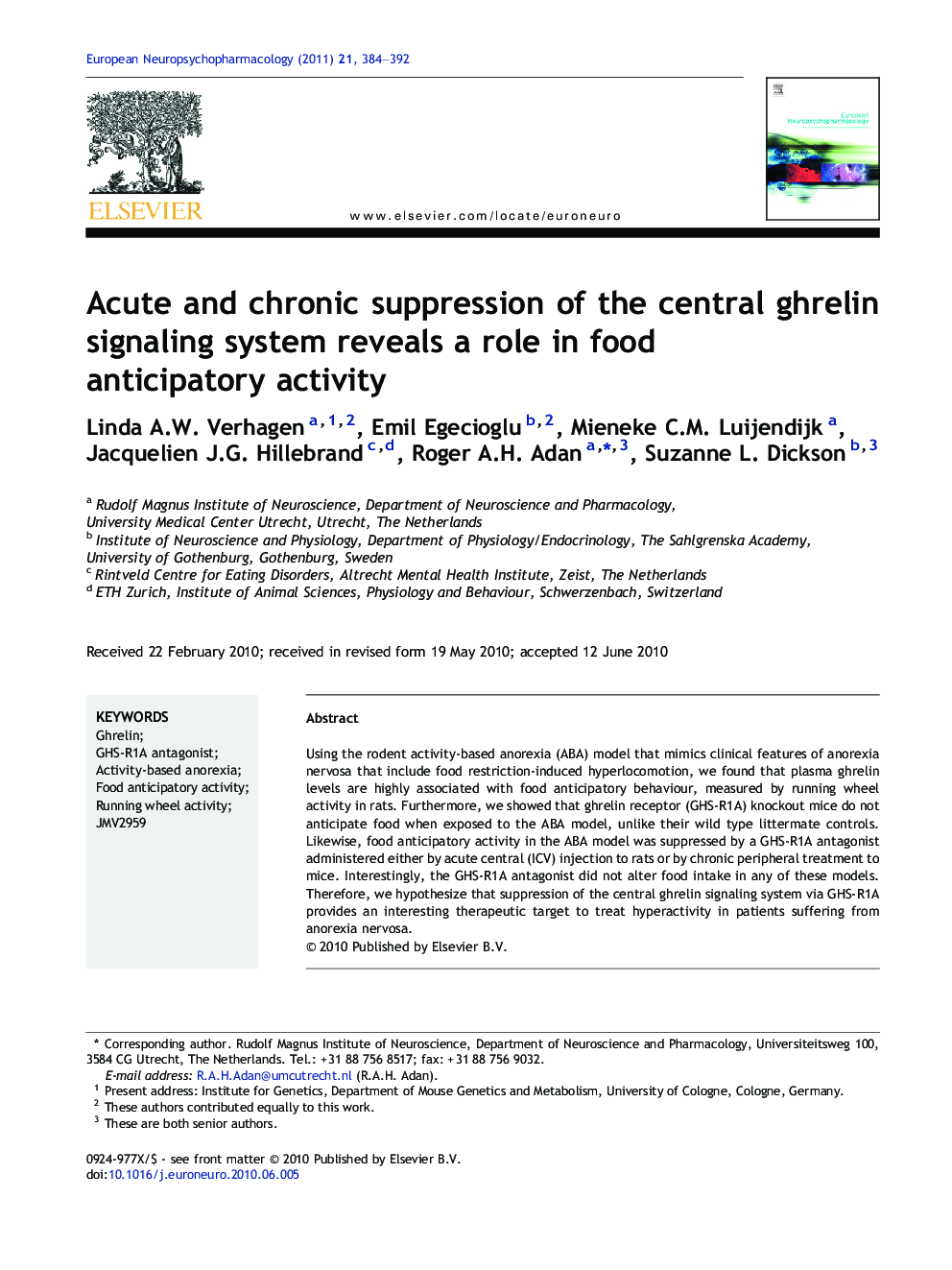| Article ID | Journal | Published Year | Pages | File Type |
|---|---|---|---|---|
| 321875 | European Neuropsychopharmacology | 2011 | 9 Pages |
Using the rodent activity-based anorexia (ABA) model that mimics clinical features of anorexia nervosa that include food restriction-induced hyperlocomotion, we found that plasma ghrelin levels are highly associated with food anticipatory behaviour, measured by running wheel activity in rats. Furthermore, we showed that ghrelin receptor (GHS-R1A) knockout mice do not anticipate food when exposed to the ABA model, unlike their wild type littermate controls. Likewise, food anticipatory activity in the ABA model was suppressed by a GHS-R1A antagonist administered either by acute central (ICV) injection to rats or by chronic peripheral treatment to mice. Interestingly, the GHS-R1A antagonist did not alter food intake in any of these models. Therefore, we hypothesize that suppression of the central ghrelin signaling system via GHS-R1A provides an interesting therapeutic target to treat hyperactivity in patients suffering from anorexia nervosa.
